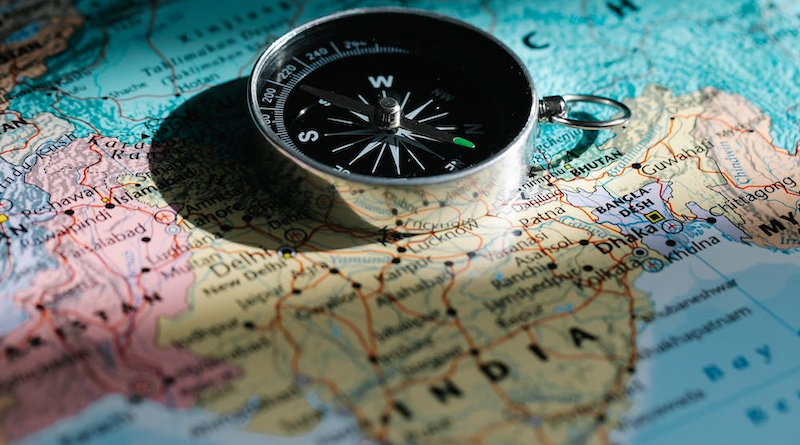Pakistan’s Evolving Role In Shaping South Asia’s Dynamics – OpEd
By Shah Khalid
The vast and complex landscape of South Asia is undergoing dynamic shifts, marked by geopolitical realignments, economic growth, security challenges, and diplomatic endeavors. At the heart of this transformation is Pakistan, a nation whose historical evolution and geostrategic position have positioned it as a key player in shaping the region’s destiny. From its inception in 1947 to its current role in fostering regional stability, Pakistan’s contributions are integral to understanding the changing dynamics of South Asia.
Pakistan’s birth in 1947 was not merely the creation of a nation; it marked the emergence of a geostrategic entity positioned at the crossroads of the Middle East, Central Asia, and South Asia. This geographical advantage granted Pakistan a unique influence over regional affairs. As The Guardian notes, “Pakistan’s location at the confluence of powerful regions in the world gives it a role beyond its size.”
The Kashmir conflict, a longstanding issue between India and Pakistan, has also played a significant role in shaping the geopolitical landscape. The Economist emphasizes that “Kashmir is not just a dispute between two nuclear-armed rivals; it is a fault line that could become a fire line.” The dispute has contributed to the geopolitical tensions and power dynamics in the region.
Pakistan’s strategic importance is further underscored by its historical security concerns and its rivalry with India. The need for maintaining its national security prompted Pakistan’s active participation in the global war on terror. As The New York Times observes, “Pakistan, whose own stability is threatened by Islamic extremists, is probably the most important ally in the war on terror.” Pakistan’s counterterrorism efforts have contributed significantly to regional and global security.
Economic Growth and Connectivity Initiatives
In recent years, Pakistan has embarked on an ambitious journey towards economic growth and connectivity. Central to this endeavor is the China-Pakistan Economic Corridor (CPEC), a colossal infrastructure project that aims to enhance connectivity between China’s western region and Pakistan’s Gwadar port. The Financial Times highlights that the CPEC is “the most prominent of China’s projects under the Belt and Road Initiative.” This initiative not only transforms Pakistan’s economic landscape but also has far-reaching implications for regional trade and development.
Pakistan’s diplomacy extends beyond its borders, encompassing neighboring countries and international organizations. Its engagement with China is particularly noteworthy. As The Diplomat states, “Pakistan and China’s diplomatic relations have transformed into an ‘All-Weather Strategic Cooperative Partnership.'” Furthermore, Pakistan’s role in regional organizations like the South Asian Association for Regional Cooperation (SAARC) and the Shanghai Cooperation Organization (SCO) underscores its commitment to promoting regional cooperation and stability.
Pakistan’s nuclear capability has introduced a crucial element of strategic stability to the region. This concept of nuclear deterrence has profoundly influenced South Asian dynamics. The Brookings Institution notes that “nuclear weapons have introduced a balance of terror between India and Pakistan.” This balance, while contributing to security, also emphasizes the need for responsible nuclear stewardship and crisis management.
Challenges and Opportunities
While Pakistan’s contributions to the region are significant, challenges persist. Internal governance issues, extremism, and the economy remain points of concern. Externally, the India-Pakistan rivalry, particularly over Kashmir, has strained relations. The Financial Times acknowledges that “normalization of relations with India has proved difficult, given mutual distrust, and particularly the security forces’ control over policy toward the country.”
Pakistan’s future prospects are optimistic, driven by its potential to emerge as a regional leader. Its diplomatic engagement with global powers, including the United States, indicates its growing role. The South China Morning Post notes that “Pakistan is drawing closer to the US, along with China and Russia, to promote peace in Afghanistan.” This role not only demonstrates Pakistan’s regional leadership potential but also its dedication to resolving conflicts and promoting stability.
Conclusion
As South Asia experiences transformative shifts, Pakistan’s role as a central player cannot be overstated. Its historical evolution, geostrategic location, and commitment to regional stability have positioned it as an influential force. From counterterrorism efforts to economic initiatives and diplomatic engagements, Pakistan’s contributions shape the region’s dynamics. As it navigates challenges and leverages opportunities, Pakistan’s journey continues to be an essential chapter in the story of South Asia’s evolution.

